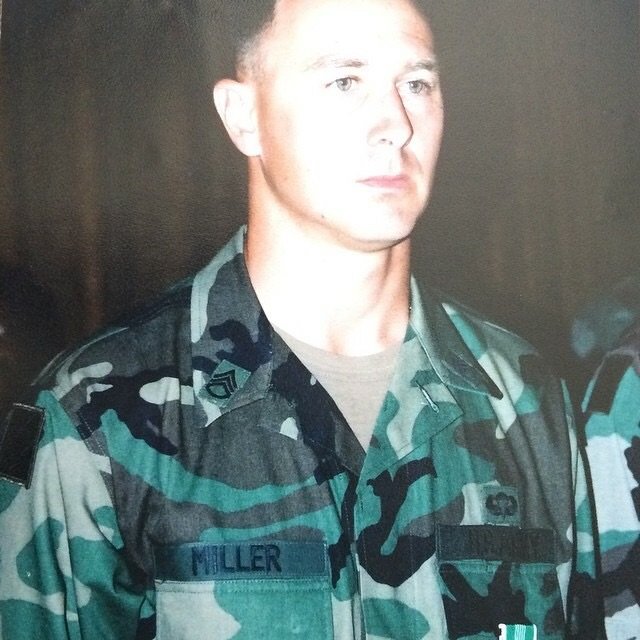By Michael Kinney
When David Andrew Miller was on the track, he was safe. When he was practicing for the 100 and 200-meter dashes at Newcastle High, he was able to block out the stressful and heavy situations that awaited him at home.
“I don’t even know if I dealt,” Miller said. “The track keeps my mind off of all the challenges I have to face. My dad having being diagnosed with all this stuff is very challenging. I don’t even really know how to deal with it. The track helped me deal with it, kept me busy.”
And what awaited Miller at home was his father, Staff Sgt. David Miller, who returned home from serving overseas a different person than when he left.
“We came here a couple of years ago, because my husband was diagnosed with a horrific, debilitating disease called Huntington’s disease in 2013,” Laura Miller said. “He was also diagnosed with traumatic brain injury from combat. He’s a combat scout and been through several combat deployments.
“As they were accepting him, they diagnosed him with Huntington’s. So it’s been really challenging beyond the scope of anyone’s imagination how difficult it has been for our family.”
According to the Mayo Clinic, Huntington’s disease is an inherited disease that causes the progressive degeneration of nerve cells in the brain.
Because of the hardships Staff Sgt. Miller has endured and the how the younger Miller has dealt with the situation, he was recently awarded a $500 grant from the organization Our Military Kids.
“I’m humbled they would even send out something like that,” Miller said. “Let alone $500 just for sports. It’s amazing.”
Our Military Kids is a non-profit group that supports the children of wounded service members/veterans by awarding grants that pay for participation in sports, fine arts and academic tutoring programs, according to OMK’s website.
“Our Military Kids takes great pleasure in recognizing military kids like you for proudly serving our country,” Co-founder Linda Davidson wrote Miller. “We appreciate the sacrifices you and your family are asked to make during this period, and we want to thank you for all of your effort. We commend you for doing your part in supporting your parent while (he) is recovering from injury and/or illness.”
Even though Miller could have used grant on anything, he chose to give the money to his Newcastle track program, so the school could purchases needed equipment for the team to use.
“It’s been an overwhelming time,” Laura Miller said. “It’s been a really challenging last few years us. And David receiving this was such a great help. It was a grant meant to offset some of his expenses participating in track.
“David decided that instead of having it for himself, he wanted to share it with the team, because the team could have used some things for track. It meant a lot to him.”
With Miller’s high school career over, he is now focused on college. Miller said he has been accepted into Central Oklahoma and Southwestern State, but he is currently trying to get admitted
into the University of Oklahoma, where he would follow in his mom’s footsteps and study to become a psychologist.
Because Huntington’s Disease can be genetically passed down, there is a fear that Miller could one day start having the same issues as his father. But his parents don’t want the 18-year old to have to worry about that now. They want him to live his life like he ran track– holding nothing back.
“Having a dad come home and he is completely different than how he went, has impacted our lives negatively,” Laura Miller said. “However, because of the way my husband is and the way David has been raised, he put that energy into something positive.
“Choosing to live life best you can; that’s what he’s been doing. [Huntington’s] a scary thing because it’s a genetic disease. It’s kind of looming over his head. But, we want him to live his life, before he decides to check himself to see if he is a genetic carrier. There is nothing worse than living with something over your head like that. It could impact in negative ways as well. That’s another added thing he’s been very resilient; that’s what being a military brat has taught him. Track has played a significant role, more than anyone can understand.”
Article first ran in The Newcastle Pacer
